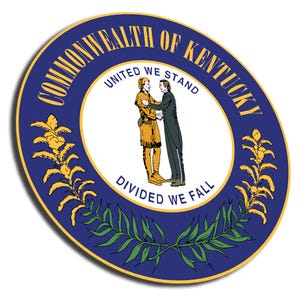PVA may be violating state law, suit alleges

(Photo: (by Amber Sigman, Special to The)
Property Valuation Administrator Tony Lindauer — whose office has drawn fire from homeowners upset over skyrocketing valuations — is violating state law by relying on a computer mapping system and not visiting all taxable property every four years, a former field assessor charges in a lawsuit.
Several other former field assessors, who are not part of the Jefferson Circuit Court lawsuit, back up the ex-state employee's claims that the software led to "inaccurate and incomplete inspections."
Pedro Garcia worked in the PVA office as a residential and commercial appraiser for four years before being fired in August 2012. The suit Garcia filed two years ago claims that he was directed to cease conducting field exams of taxable property earlier that year and instead use Pictometry and Lojic, two software mapping programs, to assess home values.
"When it started it was supposed to be a tool to help you out," Garcia said. "But it's not supposed to be based solely on a computer program. In my opinion, they wanted to use the computer program because that way they save money on paying mileage to the people doing all the inspections."
PVA field assessors were also told to write a memorandum in the PVA's system indicating the properties had been inspected, according to the suit. For hundreds of parcel entries, Garcia said he verified the computer mapping sketch but added a note that "no physical inspection" of those properties had been made. He alleges PVA supervisors Jason Hancock and Ken Morrow ordered him to delete the notes and that he was fired when he refused.
The civil suit accuses Lindauer and his office of retaliating against Garcia in violation of Kentucky's civil rights and whistleblower laws after he raised concerns that the new policy did not comply with state law.
PVA defends actions
Representatives in Lindauer's office declined to comment on the case, but PVA spokeswoman Colleen Younger said no employee "was ever told to stop physically inspecting properties" and that the two mapping programs are "only complements to the physical assessments."
Younger said the PVA is not violating any law; it is "simply trying to do more with less," while trying to save taxpayer money with a more sustainable process.
The PVA assessments are responsible for how much a property owner owes in taxes to the state, Jefferson County Public Schools and metro government or suburban fire districts. State law mandates each parcel of taxable real estate in a county be physically inspected at least once every four years.
Attorney Laura Landenwich, who is representing Garcia, said Lindauer would face penalties if the statutes on assessing property are violated. "So there is an incentive to shut down employees who want to bring that to light because the penalties are both personal and professional."
Any PVA found to be violating that provision could be removed from office or have his or her compensation suspended. The suit represents only one side of the case.
Other assessors said they too were instructed to stop field exams even though they raised concerns about potential computer errors.
"They told us to do it all by Pictometry," said James Miller, a former PVA appraiser. "And we said, 'Well, we can't be that accurate, and it's not fair,' but they said it saves us from going out on trips and to do it with a computer."
Miller, who retired three years ago, said that for five years he was responsible for examining residential parcels across a swath that included Jeffersontown, Highview and Fern Creek.
He said that when he used the mapping system online he found properties that had not been physically examined for more than a decade. He added there are limitations when using a computer analysis to accurately evaluate a property's value and that may be the source of higher than usual evaluations this year.
"They had a rotation system to supposedly get all the neighborhoods, but if you didn't get them done or say there were 20 neighborhoods and you only got 18 done, well the next year in January you started a different rotation and some of those at the tail end they would never get done."
Marilynn Hettich, a residential field assessor for almost a decade before she was let go in 2012, said Lindauer's office routinely neglects to do proper physical assessments.
"There were always ways to get around that," she said. "They were under-staffed, they didn't have the money and there was this or there was that. They really weren't worried about it. Some of us offered our opinion and read them the riot act on what was the law and they wouldn't listen or pay attention."
Property owners are taxed at a rate per $100 of assessed value when the Jefferson County sheriff's office sends out tax bills in November.
Lindauer's office mailed out more than 60,000 assessment notices this year with property values increasing by an average of 15 percent, officials said. Many homeowners, however, complained of hikes four times that rate and the PVA's office extended its appeals deadline through May 29 as a result.
Budget cuts blamed
The Jefferson PVA has been hit by a total of $1.2 million in budget cuts over the past five years, which has led, in part, to reductions in its field assessor staff, according to PVA officials. Those staff reductions along with attrition have impacted the agency's ability to check and validate information gathered, such as important field data for property sketches, characteristic changes and conditions, Younger said.
The PVA now employs just seven field assessors in both its residential and commercial properties departments, down from 13 appraisers in 2010. Miller, the former field assessor who retired in 2012, said that during his tenure an inspector could check up to 20 properties per day.
"We have lost some manpower, certainly, but the technology does allow us to continue to fulfill our statutory requirement," she said. "And it saves the taxpayer money by saving on gasoline costs; it's a greener program because when you save gasoline costs you have cleaner air and you have less paper, so it saves trees."
There are currently four assessors responsible for overseeing approximately 280,000 residential parcels across the county, along with just three who measure values for about 24,000 in commercial parcels. The cuts have also affected the PVA's ability to complete the annual revaluation of older motor vehicles, which the state has added to its responsibilities.
Landenwich, who represents Garcia in the civil suit, said the PVA blaming budget cuts is a "very poor excuse" given the state law's explicit provisions requiring physical examinations, which are set up to protect Kentucky taxpayers.
"Everybody faces budgetary constraints within their business; the PVA is no different," she said. "We can look at the salaries of the employees that sit in those desks and maybe find some ways to hire more field assessors to go into the field and actually evaluate these properties."
The Kentucky Department of Revenue oversees the real property tax assessment and collection process for all 120 PVA offices statewide. David Gordon, executive director of property valuation in the revenue department, said computer mapping services like Pictometry should serve as a supplement, not a replacement, of physical inspections.
"We haven't sent out any directives that either of those programs or any other program ever would replace the physical inspection," he said.
State revenue officials are also charged with conducting performance audits of each PVA office every two years. The last review of Lindauer's office by the state was completed in 2010, and it praised Lindauer's administration for the quality of assessments and noted their use of Pictometry "has increased the accuracy and efficiency of the valuation process." But the revenue department was never made aware of the allegations in the Garcia suit, said Gordon, who added the 2012 audit of the Jefferson PVA has yet to be completed.
A University of Louisville professor who has studied property appraisal systems across the country defends the use of computer mapping software as a viable replacement for field assessments.
"Pictometry means that a human being took the picture and studied it," said John Gilberbloom, director of the Center for Sustainable Neighborhoods. "If the taxpayers want to pay more for additional staff persons to do this maybe they would be more in line with the law, but it is cosmetic."
He said using computer mapping programs is a permissible substitute that provides a more scientific assessment of a property's value than just a field assessor.
Gilberbloom said his research shows field assessments are often inaccurate or biased against poorer homeowners.
"Tony Lindauer's PVA is providing the most accurate property assessments than most other cities in America," Gilberbloom said. "His fame is deserved for standing up to the rich and asking that they pay their fair share. In the long run he is helping to provide tax justice and equity for all of Louisville, not just for a few."
Reporter Phillip M. Bailey can be reached at (502) 582-4475. Follow him on Twitter at @phillipmbailey.


No comments:
Post a Comment